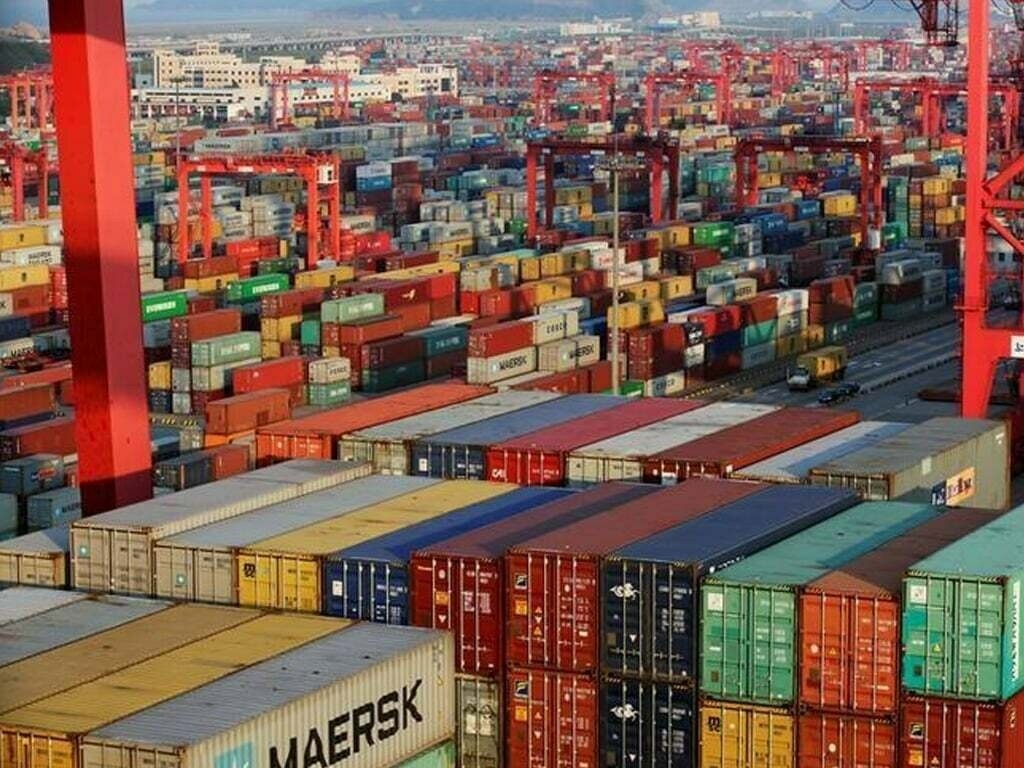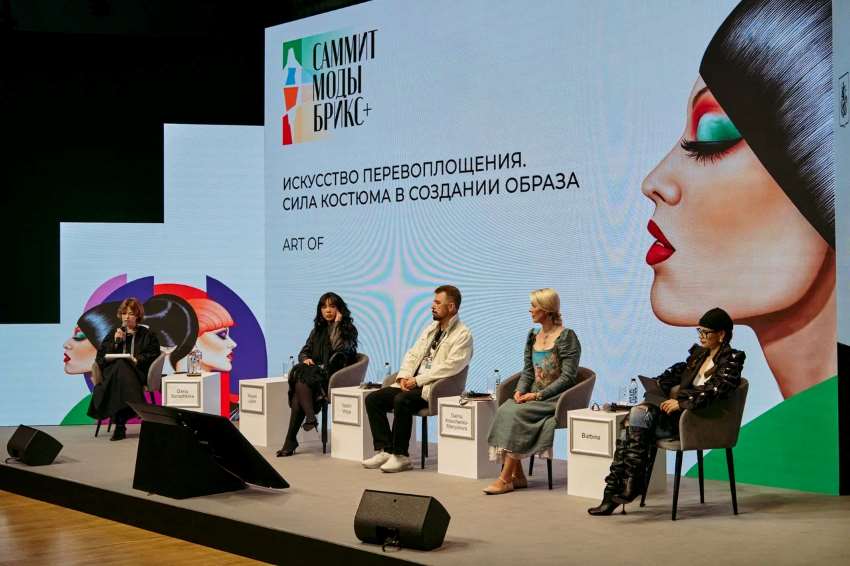FW
The latest editions of the Salon International de la Lingerie (SIL) and Interfilière expo in Paris showcased the industry’s bright future. The Eurovet shows which ended on January 22,. at the Porte de Versailles exhibition centre in Paris showed a lot of enthusiasm and energy as exhibitor stands were busy and the prevailing mood was positive.
A spokesperson at the Maison Lejaby stand said, "The industry is definitely dynamic, finally things are moving. You can feel it in the air, visitors are well-disposed and frankly our stand was never empty." Huit’s spokesperson said attendance for this edition and business was good, quite a few orders were placed. What's also interesting is that the show is more modern, the trend sections and the special interest areas are really attractive, and this is good for everyone.
Show organiser Eurovet, reported a rise in the number of SIL visitors by a few percentage points, continuing with the significant count which began last year. Visitors in the premium and VIP buyer category recorded a 12 per cent increase. As proof of the show's fresh new approach, Eurovet noted a rise in attendance for three types of visitors: e-tail buyers, concept stores and fashion retailers.
The share of French buyers remained the same, at 36 per cent of the total, followed by those from European countries: Italy, Germany, the UK, Spain and Belgium. US buyers increased, gaining one place in the ranking, and so did those from Russia, who rose two places in the visitors’ top 10. US and Russian buyers also did well in the visitor ranking for Interfilière, where they made the top 10.
The shows' January 2018 edition was a success thanks to a combination of factors: innovation-based initiatives; dedicated consultancy areas for retailers; catwalk shows and the presence of directional brands prominently featured in the 'Exposed' section, which attracted a new kind of visitor.
The revised Trans-Pacific Partnership (TPP) trade agreement now under its new name Comprehensive and Progressive Agreement for Trans-Pacific Partnership (CPTPP) will be formally signed in Chile on March 8, and will become operational as soon as at least six members ratify it. The 11 remaining countries from the initial TPP finally agreed to go ahead with a new deal without the US.
The deal reduces the scope for controversial investor-state dispute settlements, where foreign investors can bypass national courts and sue governments for compensation for harming their investments. It further incorporates enhanced safeguards to protect governments’ right to regulate in the public interest and prevent unwarranted claims.
The new agreement a considerable win for Australian farmers and service providers in a trading area valued at about A$90 billion, is more of an umbrella framework for separate yet coordinated bilateral deals. Australian Trade Minister Steven Ciobo asserts that the agreement will deliver 18 new free-trade agreements between the CPTPP parties. For Australia that means new trade agreements with Canada and Mexico and enhanced market access to Japan, Chile, Singapore, Malaysia, Vietnam and Brunei.
This will ensure a speedier process for reducing import barriers on key Australian products which includes absorbent cotton. It also promises less competition for Australian services exports, encouraging other governments to consider Australian services and reduces the regulations of state-owned enterprises.
The new CPTPP rose from the ashes of the old agreement because of the inclusion of a list of 20 suspended provisions on issues that were of interest to the US. These would be reinstated post a US comeback. In fact, the scope of investor-state dispute settlements are narrower in the CPTPP, because foreign private companies who enter an investment contract with the Australian government will not be able to use it if there is a dispute about that contract.
The one part of the agreement relating to temporary entry for businesspersons is somewhat limited in scope and does not have the ability to affect low-skilled or struggling categories of Australian workers. Some parts of the original agreement are still included in the CPTPP such as tariffs schedules that slash custom duties on 95 per cent of trade in goods.
The Afghan Ministry of Commerce and Industry confirmed Pakistan has implemented new regulations on the cotton industry and has stopped the import of Afghan cotton. Afghan cotton exporters also confirmed the development disclosing that numerous trucks have been prevented from crossing the border with cotton since the last 20 days. They said that the drivers have since turned back and are now offloading cotton in Kabul and storing it at a warehouse.
Businessmen in the cotton export sector said Pakistan has stopped all cotton trade across the border. Various Afghan economists said numerous cotton processing companies have started up in the country following an increase is cotton cultivation.
They said the decision by Pakistan to stop the cotton from being taken across the border will have a serious impact on Afghan business. Musafer Qoqandi, spokesman for the ministry of commerce and industry announced that the ministry will resolve the issue, “We have also begun discussions with the private sector on how to work on a fundamental solution to the problem with Pakistan, we know that this new procedure is difficult and it is impossible to take our cotton to Pakistan,” said Qoqandi. Data from Afghanistan show that the country annually produces over 60,000kg of cotton, a large portion of which is exported to Pakistan.
Bilateral trade between Myanmar and China have touched $7.42 billion in the first eight months (April-November) of the fiscal year 2017-18. The Ministry of Commerce says Myanmar's exports to neighbouring China garnered $3.42 billion while its imports were $4 billion. In last FY 2016-17, bilateral trade between the two countries was $10.8 billion.
Myanmar largely trades with China via Muse, Lweje, Kanpikete, Chinshwehaw and Kengtung border points. The country's rice, peas, sesame seeds, corns, fruits and vegetable, dried tea leaves, fishery products, rubber, minerals and animal products are mainly exported to China, while in the reverse direction machinery, plastic raw materials, consumer products and electronic devices are trucked across.
Ingvar Kamprad, Founder of Swedish furniture giant Ikea, died at the age of 91. The well- known retailer said in a statement, “The founder of Ikea and Ikano, and one of the greatest entrepreneurs of the 20th century, Ingvar Kamprad, has peacefully passed away, at his home in Smaland, Sweden, on the 27th of January. (He) was a great entrepreneur of the typical southern Swedish kind – hardworking and stubborn, with a lot of warmth and a playful twinkle in his eye.”
Founded in 1943, by Kamprad when he was a teen, Ikea began developing its own furniture in the mid-1950s, popularising renowned Scandinavian design – sleek and functional – on an industrial scale and conquering first Europe and then North America before taking on the rest of the world. He got the idea for flat-pack furniture as he watched an employee taking the legs off a table to fit it into a customer’s car and realised that saving space meant saving money.
Kamprad has been previously ranked among the world’s 20 richest people by Forbes magazine. His personal fortune was recently estimated at over 30 billion euros ($A45 billion) and Ikea is now heading for 50 billion euros in annual revenues.
Industry experts on apparel technology, innovation and automation from around the world will congregate at Bangladesh Fashionology summit to be held in Dhaka on February 12, 2018. Nearly 17 industry specialists from 10 countries worldwide are participating in the first ever fashion and tech summit to discuss latest apparel products and technology that will spearhead future innovation.
The summit will focus on issues such as ‘factory of the future’, ‘virtual reality and digitalization of supply chain’, ‘fashion tech and sustainable innovation’, and ‘mass customization and on demand manufacturing’. Bangladesh Apparel Exchange (BAE) — the organiser of the summit — is also going to arrange the first ever ‘digital tech fashion show’ during the event where some of the most creative and innovative fashion design with digital and tech ideas from around the world will be displayed.
The BAE is going to demonstrate operation of Cobots (Collaborative Robots), who can work along with human to achieve better efficiency even during this fashion and tech summit. The founder and CEO of BAE, Mostafiz Uddin says by organising the Bangladesh Fashionology summit they endeavour to bridge the gap between the present and future of Bangladesh apparel and textile industry through technology, innovation and knowledge sharing. “We are bringing together under one roof the most inspiring and innovative thinkers from across the globe to initiate the much-needed conversations around technology, digitalization and innovation in the apparel and fashion industry,” he added.
Leading scholars from across the world will share their expertise, including Jonathan Zornow who invented Sewbo, the robot to sewing a garment; Pradeep David, General Manager of Universal Robots South Asia who is the pioneer of the concept of Cobots and Vikas Raykar, the research scientist and expert on Cognitive Fashion at IBM Watson.
The Danish capital, which hosts then next fashion week from January 30 to February 2, is aiming to expand beyond the already lively Danish fashion scene and cement its status as the city at the crossroads of Scandinavian fashion, while also calling in some names from a little further afield.
The show will also host several runways in a dedicated space. In terms of brands, the organizers are presenting a variety of international names, including newcomers and regulars presenting new concepts.
Revolver's focus is more specifically targeted at premium labels and the fair has organized for some 300 brands to present their fall/winter 18/19 collections at the "Revolver Village", which will also contain individual showrooms.
Copenhagen Fashion Week has also been working on international representation, attracting a variety of foreign labels, such as the Norwegian brand Holzweiler (for the second time), and Swedish labels Uniforms for the Dedicated and J. Lindeberg with its hybrid design sportswear aesthetic.
Another initiative that has contributed two events to the program, including one for the Fashion Week's launch, is a partnership with Kopenhagen Fur, the Danish association of fur producers. The organization's own label Oh! by Kopenhagen Fur will present a runway show on the first day, while a competition challenging fashion students from all over the world to come up with a new and creative design interpretation of fur will take place on the evening of the second day.
Cone Denim announced a new partnership with Thread International to expand its S Gene collection with post-consumer recycled content. Hailed as the ‘next level of socially sustainable denim fabric,’ Cone’s new S Gene+ with Thread will be the company’s most advanced power stretch denim. S Gene, which celebrated 10th anniversary in 2017, is manufactured with dual core technology designed to provide stretch and recovery. The yarn is wrapped in a spun covering to provide a soft cotton hand and natural appearance that provides added stretch ability.
Thread International manufactures fabric made from post-consumer recycled plastic bottles. Additionally, the company’s First-Mile branded recycled polyester supports thousands of jobs and income opportunities in Haiti, Honduras and Taiwan. By transforming waste into usable products, Cone says the materials fulfil market demand for eco-conscious products.
Kara Nicholas, Cone Denim’s vice president of product design and marketing noted, “Our exclusive denim partnership with Thread International further affirms Cone Denim’s commitment to not just sustainability, but also social responsibility.” S Gene+ with Thread will be part of Cone’s Sustainablue initiative, a range of environmentally friendly fabrics comprised of denim constructions using recycled cotton, recycled polyester and other sustainable yarn.
Kara explains, “This exciting addition to Cone’s S Gene collection offers the authentic look and feel of traditional denim with advanced stretch, recovery and durability in an eco-friendly fabric. Consumers can feel good about these fabrics knowing that each yard is made with repurposed material that is creating jobs and supporting underdeveloped communities.”
In November, Cone debuted S Gene constructions with Unifi’s recycled polyester fibre, Repreve. Jeans made with the fibre contain as many as three post-consumer plastic bottles. This month Cone’s facilities in Mexico received the Oeko-Tex Standard 100 certification on selected denim products. The certification provides transparency in the textile supply chain and assures consumers that certified products have been produced without the use of illegal, regulated or other known harmful substances.
The Bangladesh Garment Manufacturers and Exporters Association (BGMEA) is keen on reaching a settlement on minimum wage for garment workers by negotiating with labour unions before submitting the final proposal to the newly formed wage board. The government formed the wage board on January 14 to review minimum wages for readymade garment sector workers.
BGMEA leaders say they were trying to reach a compromise over minimum wage to stall any possible workers’ unrest during negotiations by the wage board.
The trade body held a meeting with the RMG sector trade union federations’ leaders and asked their cooperation to keep workers calm during the negotiation. The BGMEA held meeting with leaders of 16 garment worker federations affiliated with IndustriALL Bangladesh Council and the trade body would hold another meeting with the leaders of other federations next week.
BGMEA vice-president Mahmud Hasan Khan Babu said, ‘It was a regular meeting with the IBC leaders and we have sought their cooperation to set the minimum wage for the garment sector without any untoward situation.” He also said that on the first day of the discussion the BGMEA had gained a deeper understanding of the issue at hand.
Union leaders demanded Tk 16,000 as the minimum wage and further discussion on the amount would be held in the next round of meeting. Babu said, “To avert any untoward situation centring setting of the minimum wage for RMG workers, we want to settle the amount through negotiations with labour leaders.”
Joe Nicosia Senior Head of Cotton and Merchandising at Louis Dreyfus Company in Memphis has estimated US cotton acreage will grow between 12.5 to 13 million acres in 2018 partly due to favourable prices as against other crops. At the annual meeting of the Southern Cotton Growers and South Eastern Cotton Ginners Association, Nicosia, said cotton is still faring favourably when compared to other row crops in the US.
At current prices, world cotton area is likely to increase slightly in 2018-19, he said. “With a production outlook of 20 million plus bales, the US has the opportunity to maintain or even expand its share of world trade, but execution is going to be critical.” International cotton consumption has grown to 120.8 million bales for 2017-18 but this is still below the peak of 124.2 million bales in 2006-2007. Global consumption fell to 104.2 million bales in 2011-2012.
USDA reports world cotton production is expected to increase to 121 million bales in 2017-2018, as against 106.6 million bales in 2016-2017 and 96.2 million bales in 2015-2016. Currently, Nicosia forecasts a slight global cotton deficit in 2018-2019. He said the world has moved from a 16.1 million bale production deficit in 2015-2016 to production-consumption balance in 2017-2018.
USDA data estimates 2017-18 world ending stocks to be 87.8 million bales. Nicosia said this is still high and could impact prices. Nicosia expressed concern about cotton being held in US warehouses that is not being shipped to customers quickly enough. Nicosia said shipping delays by warehouses is harming all sectors of the industry.











